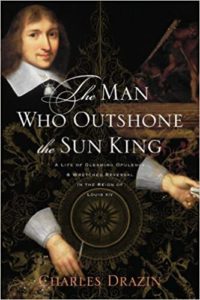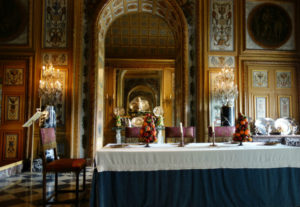“Look me up whenever you come to Paris.”
That’s what famed author Edmund White said to me when we met at an awards banquet in D.C. in the late 80s. I was frazzled in the 90-degree heat that weekend and not prepared to meet an author I admired so much. He was the very first person I saw as I walked into the banquet and I probably gushed when I told him how much I admired his work.
White surprised me with his very specific praise for a story I’d contributed to the anthology Men on Men 2, a story that would become the title piece of my first collection a year later. Both the story and the collection would help get me national recognition, earn me scores of reviews, and start a series of book tours that ultimately led to readings on three different continents.
White meant what he said. My spouse and I did look him up a few years later on a trip to France. We were taking advantage of a great exchange rate and basing ourselves in Paris for three weeks, planning day trips. When we asked White at dinner what we should make a point of seeing that tourists tended to miss, he didn’t hesitate: Vaux-le-Vicomte, whose official website is here.
I had never heard of this chateau only an hour’s drive from Paris. The team of artistic geniuses involved in building it for Louis XIV’s superintendent of finances, Nicolas Foucquet, was the same trio who later designed and built Versailles and its gardens. White assured us of two things. Versailles was mammoth and would be teeming with busloads of loud and cranky tourists (he wasn’t exaggerating). Vaux was more jewel-like and he’d be surprised if we would find more than a few dozen people touring the chateau and its exquisite grounds.
He was right. The day we visited was sunny, and like Charles Ryder in Brideshead Revisited, we were “drowning in honey” as we moved from one amazing room filled with gorgeous paintings, sculptures, furnishings to another–and then out into the gardens to enjoy elegant vistas that seemed almost too perfect to be real.
That day and White’s advice came back to this week when I read the biography above of Foucquet, who was tried on a trumped-up charge of treason and for various financial crimes by the young king. Louis XIV wasn’t just jealous that Foucquet had the most beautiful dwelling in France, he was out to flex his muscles and show other rulers who was in charge in France. He was also moved by people scheming against Foucquet for complicated reasons that would make for a great miniseries. Foucquet’s long imprisonment in a remote fortress reads like chapters from The Count of Monte Cristo.
But despite his ignominious last years, he left behind a monument of architecture, painting, and landscape gardening that some call the most beautiful building in France. Even rooms with a less-than-august purpose were magnificent: Vaux was one of the first chateaux to have a dining room.
Like millions of other Americans, I’ve had cabin fever for weeks now, but this biography opened up an unforgettable day for me, one that happened thirty years ago. It sent me to a closet where I keep my travel photo albums—remember those? I hadn’t thought of them in years and realized now that each one is a doorway to another life, another time, and a very welcome escape.
Lev Raphael is the prize-winning author author of 27 books in genres from memoir to mystery. He offers individualized writing workshops and manuscript editing at writewithoutborders.com.
Twitter Vive la France! photo below: (CC BY-NC-SA 2.0)




